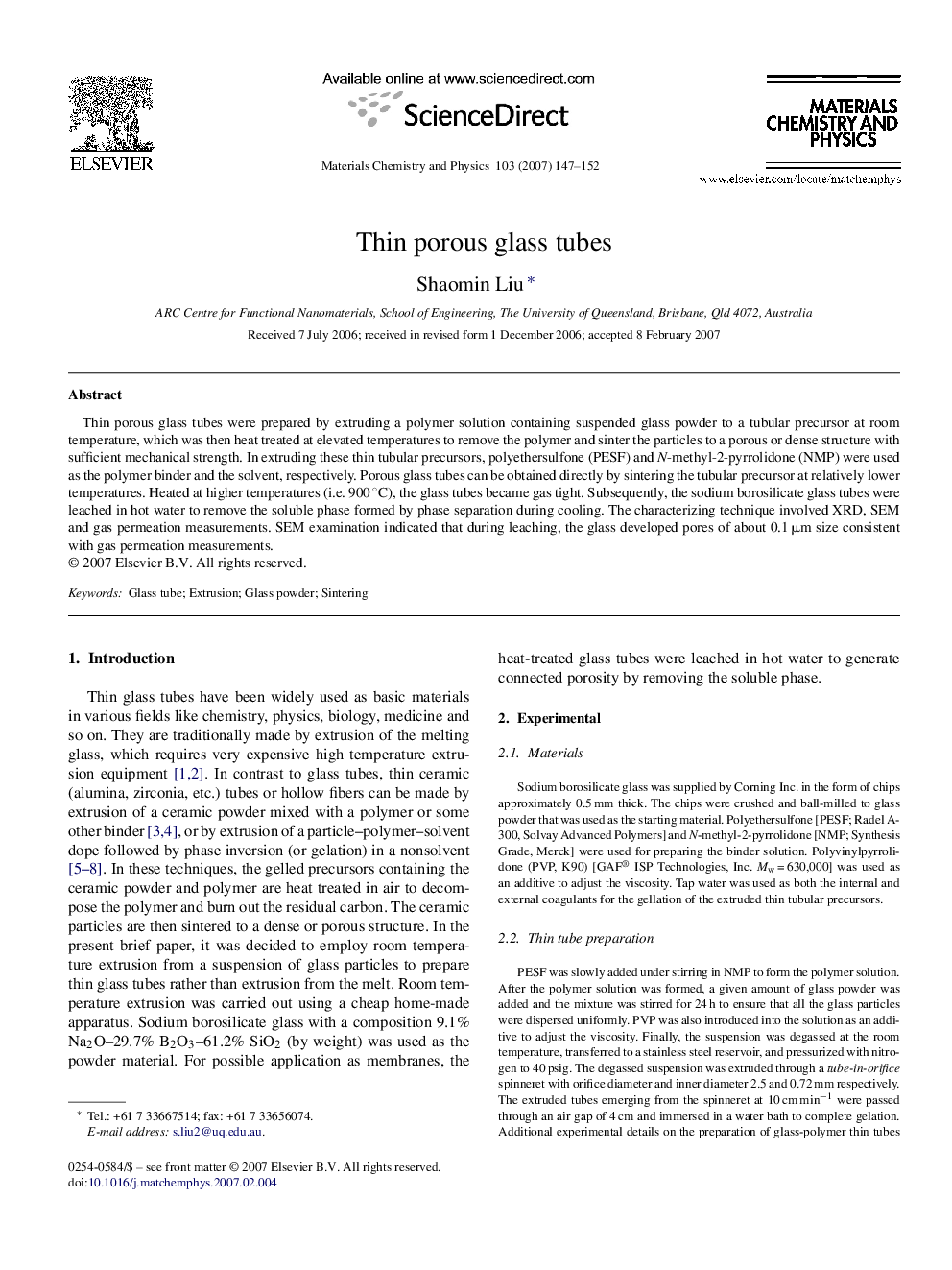| Article ID | Journal | Published Year | Pages | File Type |
|---|---|---|---|---|
| 1527705 | Materials Chemistry and Physics | 2007 | 6 Pages |
Thin porous glass tubes were prepared by extruding a polymer solution containing suspended glass powder to a tubular precursor at room temperature, which was then heat treated at elevated temperatures to remove the polymer and sinter the particles to a porous or dense structure with sufficient mechanical strength. In extruding these thin tubular precursors, polyethersulfone (PESF) and N-methyl-2-pyrrolidone (NMP) were used as the polymer binder and the solvent, respectively. Porous glass tubes can be obtained directly by sintering the tubular precursor at relatively lower temperatures. Heated at higher temperatures (i.e. 900 °C), the glass tubes became gas tight. Subsequently, the sodium borosilicate glass tubes were leached in hot water to remove the soluble phase formed by phase separation during cooling. The characterizing technique involved XRD, SEM and gas permeation measurements. SEM examination indicated that during leaching, the glass developed pores of about 0.1 μm size consistent with gas permeation measurements.
